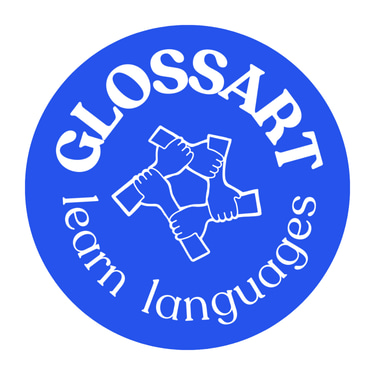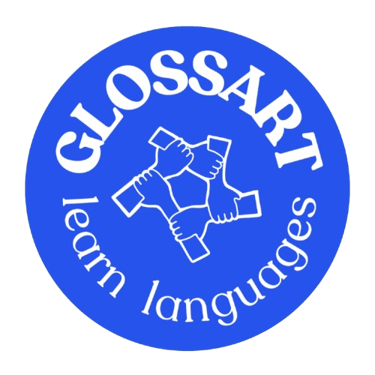Transform Your World with Language Learning at Glossart Languages!
The Power of Relationships in Language Learning
What if the key to mastering a new language isn’t just study—but connection? This article explores how meaningful human relationships activate neurochemicals like oxytocin and enhance neuroplasticity, turning language learning into a deeply emotional, brain-altering experience. Discover why we don’t just learn about language—we learn through people, and how every meaningful word begins with feeling seen, safe, and supported.
Evangelia Perifanou
4/28/20253 min read


🧠 How Relationships Shape the Way We Learn Language
When we think of language learning, we often imagine grammar exercises, vocabulary flashcards, or pronunciation drills. We picture solo study sessions, apps that correct our accents, or long lists of verb conjugations. But at the heart of learning any language—at the root of our ability to retain, recall, and meaningfully use what we study—is something far more fundamental:
Human connection.
Not just surface-level interaction, but real, emotionally resonant relationships. Bonds that make us feel safe, seen, and supported. These are not optional extras; they are the very conditions under which the brain thrives and learning flourishes. In this article, we dive into the compelling science behind relational learning—how relationships literally sculpt the brain—and why every language journey is, at its core, a journey toward deeper human connection.
🌱 The Neuroscience of Connection
Modern neuroscience confirms what educators and philosophers have known intuitively for centuries: we are wired for connection. When we experience a positive, affirming interaction, the brain responds by releasing powerful neurochemicals—especially oxytocin, often dubbed the “bonding hormone.”
Oxytocin, along with dopamine and serotonin, doesn’t just elevate mood. It enhances neuroplasticity, the brain’s ability to adapt and grow. In environments rich in trust and emotional safety, our brains become more receptive, more agile, and more capable of forming lasting memories.
These are the precise conditions that make childhood language acquisition so effortless: safety, presence, repetition, and emotional closeness. For adult learners, recreating this environment can turn a difficult, intimidating process into a transformative one.
To put it simply: we don’t just learn better when we feel connected—we become neurologically more able to learn.
🧩 Language Learning Is Inherently Relational
Language is not merely a system of grammar and vocabulary—it is the architecture of human interaction. We speak to be heard, to be understood, to belong. Language is how we make sense of ourselves in the presence of others.
Reflect on your own language learning experiences. What do you remember most vividly? The flashcards? Or the moment someone laughed at your joke in a new language, or shared a personal story that made grammar rules come alive?
We retain what touches us emotionally. Learning that is emotionally charged is encoded more deeply and retrieved more easily. A language becomes part of who we are when it is woven into our emotional and relational life, not just our academic one.
🏫 Education Through Relationship
At Glossart Languages, we hold a simple but powerful belief: language learning is a relational act.
We reject the sterile, transactional model of education where information is dumped and memorized. Instead, we create spaces where learners feel empowered, affirmed, and free to be vulnerable—because real learning begins when we’re not afraid to speak, even if imperfectly.
Your ability to thrive in a language classroom depends far more on relational safety than on natural aptitude. A supportive teacher, an empathetic listener, a community that values your voice—these are the true accelerators of learning.
💬 The Emotional Architecture of Memory
Cognitive research increasingly supports the idea that emotion is the architect of memory. Experiences that make us feel—whether joy, surprise, curiosity, or even embarrassment—are those we remember. A beautiful phrase. A song that stirs something in us. A conversation that changed how we saw the world.
Too often, traditional education divides emotion and intellect. But this is a false binary. Emotion is not a distraction from learning; it is the foundation of it.
If language learning is emotionally sterile, it will likely be shallow and short-lived. But if it touches your sense of self, your history, your longing to connect—it will endure.
🌍 Languages as Portals to Other Worlds
Each new language is a portal—to a new culture, a new way of thinking, a new way of being. But that portal doesn’t open with grammar rules alone. It opens through relationship.
To speak another’s language, even imperfectly, is to honor their world. It is an act of humility and courage. It’s a gesture that says, "I care enough to meet you where you are."
That is why we say: language learning is not just a skill. It is a radical act of empathy.
🔄 The Circle of Learning
There is a beautiful paradox at the heart of this process: we learn language through connection, and language is what deepens our connections.
A vibrant language classroom is not a quiet one—it is alive with energy, curiosity, and vulnerability. It is a place where mistakes are signs of courage, not failure. Where grammar is a bridge, not a wall.
At Glossart, we structure every class with this truth in mind:
That the brain is social.
That safety breeds expression.
That learning is not just about remembering—it’s about becoming more fully ourselves.
✨ Final Words
Let us move beyond grammar drills and technical exercises. Let us reclaim language learning as the profoundly human experience that it is.
Because when we center connection—not perfection—we don’t just produce more competent speakers. We nurture more compassionate, curious, and connected human beings.
And that, truly, is the language the world needs more of.
📬 For more insights on language, connection, and transformative education, subscribe to our newsletter or explore our programs at GlossartLanguages.com.
By Evangelia Perifanou | Glossart Languages


